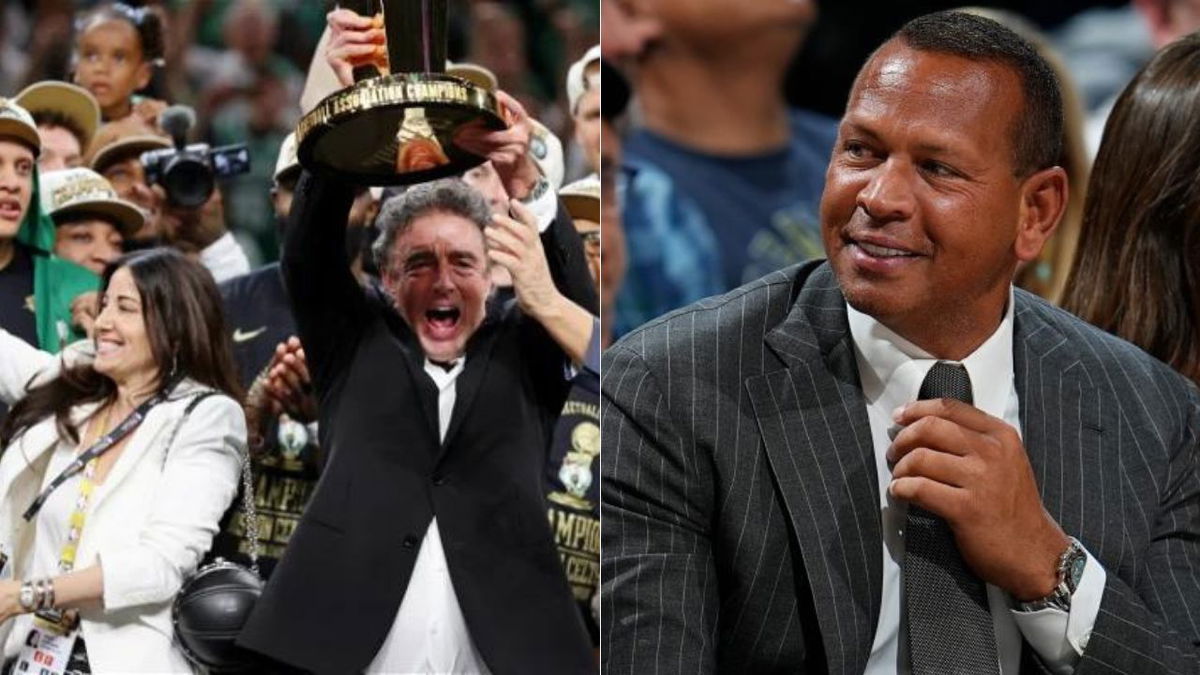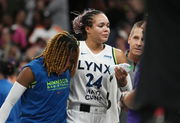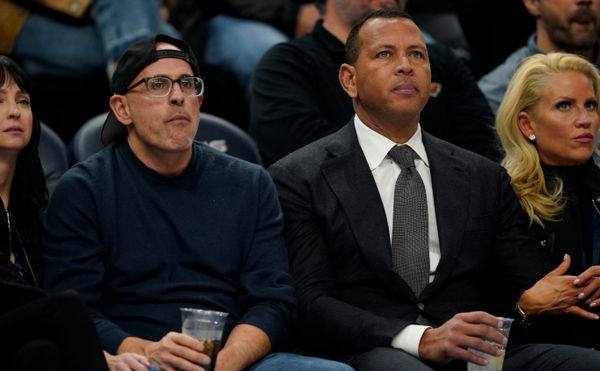

The recent NBA season saw the Boston Celtics secure their 18 championship title, surpassing the earlier tie that it held alongside the Los Angeles Lakers. Despite this being the most valuable stage of the franchise, the owners have ironically chosen this particular moment to part ways. In a press release handed out on the 1 of July, barely two weeks after the championship win, it was announced that Wyc Grousbeck and the ownership group, Boston Basketball Partners L.L.C., will sell the majority stake by late 2024 or early 2025.
Watch What’s Trending Now!
While the $4.7 billion franchise may not have any trouble in accumulating prospective buyers, a few complications can affect the sale. In a recent segment of Front Office Sports’ ‘FOS Explains’, it was highlighted that the Celtics simply will not sell a majority of their shares outright. Instead, Wyc Grousbeck will look to part with the 51% of the shares owned by him and his family members probably by early 2025.
Later, the remaining 49% shares possessed by the individual members of the Boston Basketball Partners L.L.C. group won’t acquire the new owner until 2028! By that time, the team’s valuation may reach new heights for all the wrong reasons, making the new owners regret their decision.
ADVERTISEMENT
“As the Celtics figure out where they’re headed next, both their current and future owners face some serious luxury tax issues,” said the FOS journalist. “They’ve already had to shell out nearly $40 million in luxury taxes for the last season, and it’s not looking much easier going forward.”
Back in 2023, the Boston Celtics made history by awarding shooting guard Jaylen Brown with the then-richest deal in the league’s seven decades-long history. The player was offered a supermax contract that would pay him $304 million, later reduced to $285.39 million, over five years. A year later, the Celtics would themselves top that by giving Jayson Tatum a five-year, $315 million extension. Plus, Derrick White also agreed upon a four-year, $125.9 million contract around the same time.
While maintaining a championship team is certainly not cheap, the high contracts are set to affect the Boston Celtics in the long run. Reports indicate that over $191.8 million will be spent on the salaries of the Celtics 12-player-roster in 2024. In 2025, once Tatum’s and White’s contracts become active, that number will increase to $210.3 million. This will cause the franchise to cross the luxury tax, first apron, and second apron limits. Upgraded as part of the recent CBA guidelines, crossing the luxury tax limit will impose severe penalties on the franchise. Crossing the Aprons, however, will bring additional punishment, as teams could be restricted to make trades or acquisitions.
ADVERTISEMENT
While it was confirmed by 12 July that $196.6 million would be spent on salaries, it was also confirmed that an additional $65.6 million would be paid as part of the tax bill. Once the salary expenditure increases, so will the amount to be forked out on penalties. In light of this, and the fact that the entirety of the shares will not be in the new owner’s possession until 2028, certainly will be a huge complication for whoever chooses to succeed Wyc Grousbeck.
ADVERTISEMENT
How does the Boston Celtics dilemma connect with the Alex Rodriguez-Minnesota Timberwolves issue?
The problem associated with crossing the luxury tax limit and the aprons is one that every major NBA franchise has been looking to avoid this Off-Season. Unfortunately, for many of them, it has proven to be impossible. An attempt to fix this similar issue is what may have led to the fallout between MLB legend Alex Rodriguez and Minnesota Timberwolves owner Glen Taylor.
Back in 2021, the former baseball player, along with business partner Marc Lore, began the process of acquiring the Minnesota Timberwolves. Similarly to the Boston Celtics, Glen Taylor did not allow all of the majority shares to fall instantly into the hands of the new prospective buyers. The process was kicked off with Alex Rodriguez and Marc Lore initially acquiring 20% of the shares, thereby turning them into minority owners. During the 2022-23 season, they bought an additional 20% of the shares. In order to gain majority ownership, they had to come up with the capital for 40% of the remaining shares by March 2024. During this period, however, things became complicated.
Top Stories
Kyrie Irving Breaks Silence After Injury Return Update Emerges

Prayers Pour In For Napheesa Collier After Unfortunate Health Announcement

Is Austin Reaves Dating YouTuber SteveWillDoIt’s Ex-Girlfriend? Fact Checking Viral Claim

Michael Jordan Could Have Repaired Scottie Pippen Relationship if He Wanted To: Former Teammate

Are Nuggets Signing DeMarcus Cousins? Fact Checking the Viral News

Projections for the next season showed that the Minnesota Timberwolves were getting quite close to crossing the $172 million luxury tax limit. ESPN reporter Adrian Wojnarowski revealed that Rodriguez and Lore came up with a proposal that would reduce the payroll to as low as $171 million. Along with avoiding paying any taxes, the move would also reportedly award the franchise with a tax distribution of $6.5 million. To do so, cuts would have to be made on the pay of the top players. One player who could have been severely affected by this was 22-year-old star Anthony Edwards, who was recently awarded a five-year $205 million extension.
ADVERTISEMENT

Imago
Photo by: Abbie Parr / AP
Glen Taylor was reportedly ‘spooked’ by Alex Rodriguez and Marc Lore’s proposal. Reporters indicated that the owner rejected the same because lowering players’ salaries “would jeopardize the franchise’s ability to compete for a championship.” Adrian Wojnarowski cited the same as one of the reasons why Glen Taylor eventually decided to end the sale of the majority stake to the duo. However, the Timberwolves’ recent success run, combined with the fact that their value increased from $1.7 billion (2022) to $2.5 billion (October 2023), may have also played a role.
While it is unlikely to happen, the Alex Rodriguez-Glen Taylor stint showed that owners are quite capable of doing a 360-degree turn, especially when not all shares are being transferred at the same time. At the same time, the issues can cause Wyc Grousbeck some trouble in trying to find prospective buyers.
ADVERTISEMENT
ADVERTISEMENT
ADVERTISEMENT
ADVERTISEMENT

